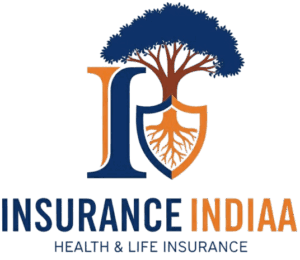Health Insurance Details: The government spends just 2.1% of GDP on healthcare, one of the lowest in the world. Government hospitals are struggling, and most middle-class people don’t like to go there.
This life is priceless, but in today’s time when you go to a private hospital and get the bill after treatment, it shows how important money is in life. Actually, illness can come uninvited at any time, and brings with it the burden of medical expenses. But health insurance can lighten this burden of yours. That is why everyone should definitely take health insurance for themselves and their family.
Health insurance is important because it provides financial security to you and your family in case of a medical emergency. You do not need to spend your savings or emergency fund in case of illness. Insurance keeps your savings safe. Most health insurance policies offer cashless facility, where the insurance company pays the bill directly in network hospitals, making immediate treatment possible.
The cost of health insurance is increasing every day
In fact, medical expenses in India are increasing at the rate of 14-15% every year. Therefore, health insurance provides security for future rising expenses. The government spends only 2.1% of GDP on healthcare, which is the lowest in the world. Government hospitals are struggling, and most middle class people do not like to go there.
In such a situation, one has to resort to private hospitals and we all know how expensive they are. Take a look at the top hospitals of the place where you live, they are always crowded, beds are not available.
Hospital expenses are increasing day by day. Surgery, ICU, or diagnostic tests can go up to lakhs of rupees. Heart surgery can cost 2-10 lakhs or cancer treatment can go up to 10-20 lakhs. Health insurance covers these expenses. Having insurance allows you to choose the best treatment and hospital without financial worries.
Suppose someone suddenly needs a kidney stone surgery. It can cost 50,000-1 lakh in a small town and 1.5-2 lakhs in a metro city. Without insurance, this expense comes out of your pocket. But a policy of 5 lakhs (which can be got for an annual premium of Rs 6,000-10,000) can easily cover it.
Health insurance is an investment that protects you and your family from unexpected medical expenses. It is better to get it early, as the premium is low at a young age and the coverage is more comprehensive. The amount of health insurance (coverage) depends on your needs, age, health condition, number of family members and budget.
How much coverage should one take?
Considering the current medical expenses, a coverage of at least Rs 5 lakh is necessary. This may be sufficient in small cities, but may fall short in big cities. If you live in a metro city (like Delhi, Mumbai, Bangalore), then a coverage of Rs 10 lakh or more is better. If you are single, then definitely get a health insurance of at least Rs 5 lakh.
If you are taking a policy for the family, which is called a floater policy, then take a coverage of Rs 10-15 lakh, because many members may need treatment in a single year. With a floater policy, the entire family (husband-wife, children, parents) can be covered in a single policy. On the other hand, if your monthly income is more than Rs 1 lakh and there are elderly parents in the family, then you can take a coverage of up to Rs 20 lakh. Because their medical needs may be high.
Critical Illness and Top-up
Apart from this, if you want additional protection for serious diseases like cancer, heart disease, then take critical illness cover. You can also take a super top-up policy, which gives more coverage at a lower premium. For example, you can take a base policy of 5 lakhs + a top-up of 20 lakhs. Similarly, you can get a top-up of up to Rs 50 lakh on a base policy of 10 lakhs, which is available at a very low premium.
How much will be the premium?
If someone is 30 years old, the premium for a policy of Rs 5 lakh can be Rs 6,000-10,000 per year. At age 60+, it can be up to Rs 20,000-50,000. The premium can be higher if there is a pre-existing disease (such as diabetes). Critical illnesses are covered in the policy after two to three years. But in case of accident and sudden hospitalization, insurance helps immediately.
How to choose?
While taking health insurance, keep in mind the needs of the family. Choose a policy that increases coverage in case of no claim, i.e. choose a policy with no-claim bonus. Choose insurers with a large network that provide cashless treatment. There should be no bracket for co-payment and room rent.
In India, companies like Star Health, HDFC Ergo, ICICI Lombard, Bajaj Allianz, Niva Bupa offer health insurance. The premium is cheaper at a younger age and the waiting period is less. Health insurance premium is eligible for a tax exemption of Rs 25,000-75,000 under section 80D.
